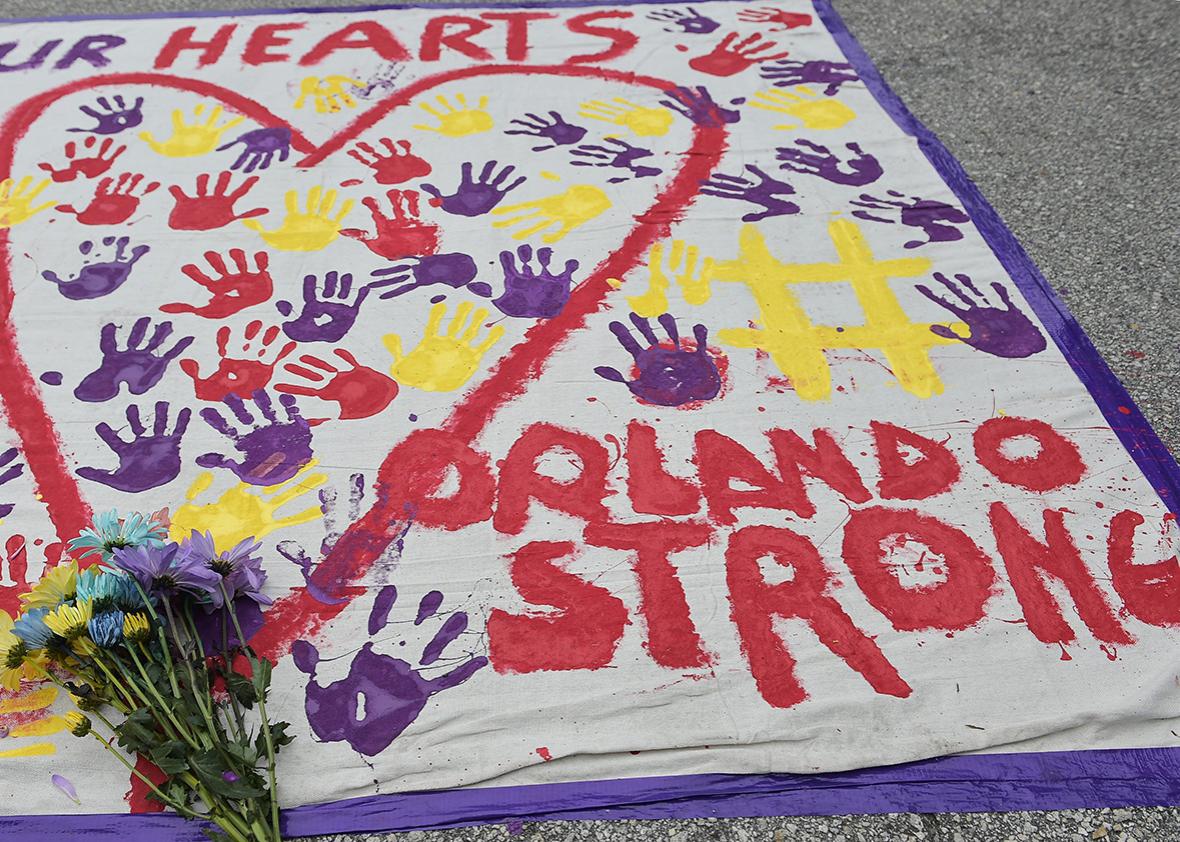“On Friday night, like most Friday nights, I went to a gay bar,” writes J. Bryan Lowder in a mournful essay about the gay community and the shootings in Orlando, Florida, this past weekend. “On Friday night, we felt safe, confident in the still-rare sense of total freedom that this space, the gay bar, afforded. On Saturday night, that confidence was broken.”
Interviewed by Isaac Chotiner, Amnesty International USA’s Tarah Demant catalogs worldwide violence against LGBTQ people. Reflecting on the Orlando shooter’s pledge of allegiance to ISIS, Demant argues: “One of the lessons here is that we are a global world: If human rights are being violated somewhere we do not live, it matters for us.”
Time to revisit Justin Peters’ 2012 piece, written post–Sandy Hook, on the destructive nature of the AR-15, the type of assault rifle used in Connecticut three-and-a-half years ago, and in Orlando on Sunday. This, Peters wrote, is a powerful weapon that should not be widely available, no matter how strenuously the NRA argues to the contrary. “It’s odd to cite hunting and home defense as reasons to keep selling a rifle that’s not particularly well suited, and definitely not necessary, for either,” Peters notes. “The lobby’s fervent defense of military-style semi-automatic weapons like the AR-15 seems motivated primarily by a desire to protect the profits in the rapidly growing ‘modern sporting rifle’ segment of the industry.”
Republican politicians have erased LGBTQ people from their public statements about the tragedy, Mark Joseph Stern writes. “Not a single congressional Republican who tweeted about the shooting mentioned LGBTQ people,” Stern observes. “That stands in stark contrast to President Obama’s clear assertion that the ‘shooter targeted a nightclub’ where ‘lesbian, gay, bisexual, or transgender people … came together to be with friends, to dance, sing, and live,’ and ‘to raise awareness and speak their minds and advocate for their civil rights.’”
Does this attack, and his bizarrely self-aggrandizing response, help or hurt Donald Trump’s electoral chances? Jamelle Bouie wonders. “The Orlando attacks may rejuvenate a flagging Trump effort or they might strengthen Hillary Clinton’s confident campaign,” Bouie writes. “But Orlando does, at least, provide a stable ground for speculation. For as much as Trump is aided by the ‘R’ next to his name, he’s also harmed by his affect and lack of experience.”
Trump’s reaction to Orlando is just perfect for ISIS’ purposes, Will Saletan writes. If he had his way, “Trump would undercut everything that’s working against ISIS: Muslim governments that have joined our military campaign, clerics who are articulating moderate Islam, ministries and activists who are working online to discredit jihadism. He would help ISIS obtain the weapons it needs most: overseas recruits who are willing to kill people in their own countries. He would make another Orlando more likely.”
Rep. Jim Himes, a Democrat who represents the Connecticut district that contains Sandy Hook, spoke with Ruth Graham about his refusal to participate in the Congressional moment of silence commemorating a shooting. “Silence is perfectly emblematic of the gross negligence that’s been shown,” Himes told Graham. “We shouldn’t be part of it. … I’m not going to tell others how they should best respond to a tragedy. But I’m sure as hell not going to be a part of it anymore.”
Say it, Himes,
Rebecca
